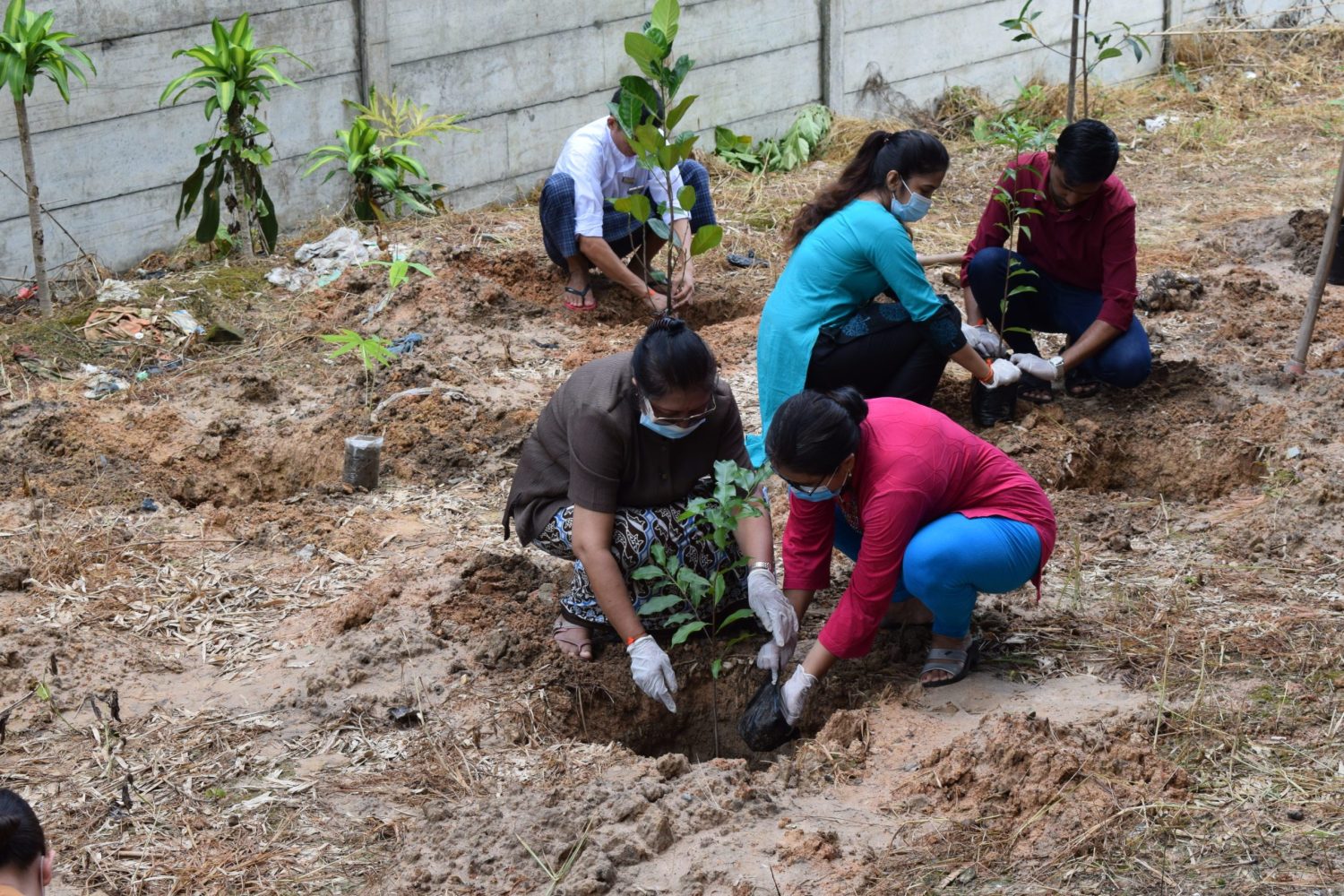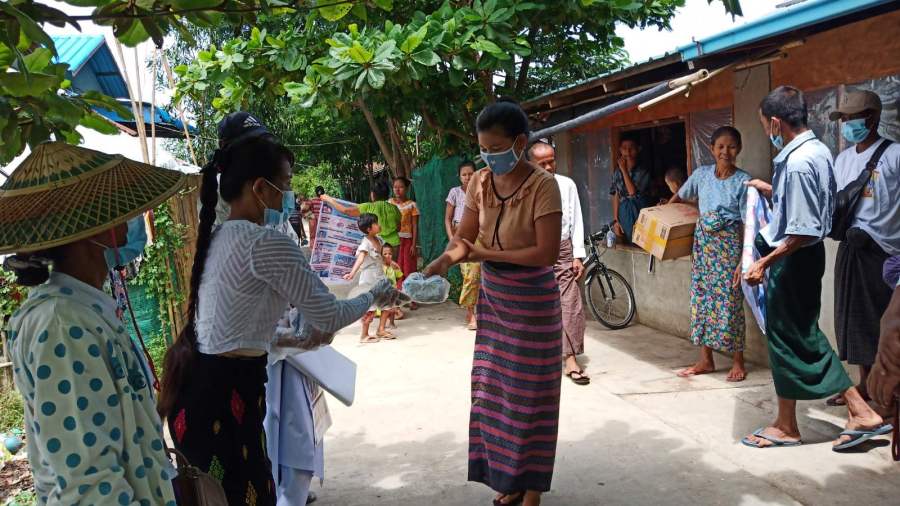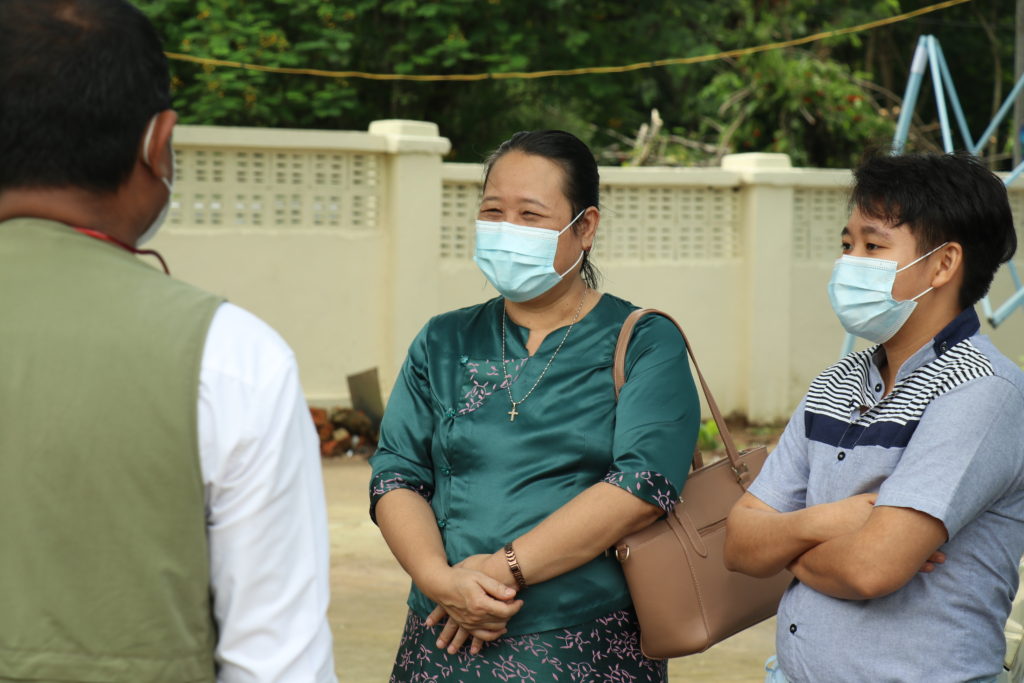Interfaith COVID-19 Response Provides Medical Supplies, Plants Trees & Counters Misinformation
20200921As COVID-19 cases continue to escalate in Myanmar, Religions for Peace’s interreligious council, Religions for Peace-Myanmar (RfP-M), immediately mobilised its vast interfaith network to provide front-line workers, hospitals, quarantine centres, and diverse communities in Yangon, Myitkyina and Lashio with direct humanitarian assistance. Committed volunteers, including members of RfP-M’s Interfaith Council and interfaith women and youth networks, collaborated with local and regional officials to distribute 100 pieces of personal protective equipment, 240 N-95 masks, 1500 surgical masks, food for 300 people in quarantine, and Information, Education & Communication Materials (IEC) sent by the Ministry of Health and Sports in an effort to reach individuals in dire need and challenge coronavirus-related misinformation.
In what Patrick Aung Tu, Program Manager of RfP-M, referred to as a “battle for survival,” COVID-19 cases reached a staggering total of 5,805 and 94 deaths, as of 21 September. RfP-M was able to expand its reach to health workers and the most vulnerable in difficult-to-access localities due to financing from the Multi-religious Humanitarian Fund.
But this campaign transcended simply supplying essential items– it also took into account rising stress and anxiety due to the pandemic. Members of RfP-M’s interfaith women and youth networks, including some first responders and healthcare workers, planted trees at a Hindu compound in Thanlin, Yangon as a means of stress reduction.
“Spending time in nature provided mental support for those who were deeply involved in the process of COVID-19 prevention. Healthcare workers, first responders, and volunteers were recognised and felt appreciated through our efforts, as well as the love, care, and acceptance from diverse communities,” said Patrick.
The campaign opened doors for future cooperation and coordination—regardless of race, religion, or socioeconomic standing—as it involved new communities and stakeholders, apart from RfP-M’s already expansive national network. In fact, the RfP-M team operating in Myitkyina donated MMK 1 million to the Rakhine state, Myanmar’s poorest state and currently a COVID-19 hotspot. “Diverse communities have greater understanding and sympathy for each other,” said Patrick, emphasising RfP-M’s efforts have never been as far-reaching as they are during the pandemic.
At this critical moment, displays of increased unity and solidarity were widespread. Patrick witnessed a transformation in attitudes not only among those receiving aid but even among stakeholders previously hesitant to work with and mistrusting of select communities or faiths. “It is our primary task to demonstrate unity in diversity. We have built this platform to foster trust through interfaith cooperation,” reiterated Patrick.
Women and youth members of RfP-M are instrumental in ongoing efforts to maintain social distancing guidelines, promote proper handwashing techniques, counter misinformation, relieve stress, and highlight the importance of religious, gender, and generational inclusivity in all humanitarian responses. Patrick recalled, “As soon as we received funding, interfaith women and youth rushed to the office to discover how they could participate in the campaign. They volunteered during the lockdown period and gathered information to identify communities in need.” In this moment of unmatched fear, uncertainty, and instability, “women and youth more actively and willingly participated and led this campaign,” allowing them to establish new forms of leadership in RfP-M.
When Field Monitor Ms. Chaw Su met with Daw Htu Raw, one of those reached by RfP-M’s humanitarian efforts, at her home in Myitkyina, she reiterated the severe economic effects of the virus on her three sons and daughter. Her income from selling vegetables in the morning market suddenly dwindled due to mandatory lockdowns and social distancing across Kachin State.
However, Daw Htu Raw was far from alone. Members of her community also faced unpredictable economic distress along with the added burdens of limited and restricted socialisation, schooling, and faith-based activities. These stories inspired her to join RfP-M’s campaign as a volunteer in Myitkyina. “I want to help others in need,” shared Daw Htu Raw. “Prayer can make one escape from COVID-19. I thank RfP-M for its support.”


